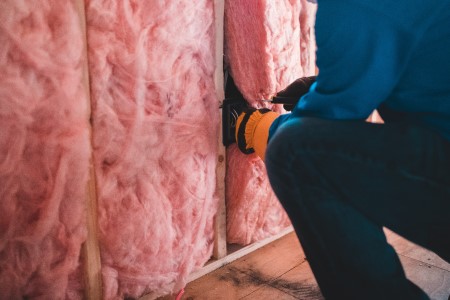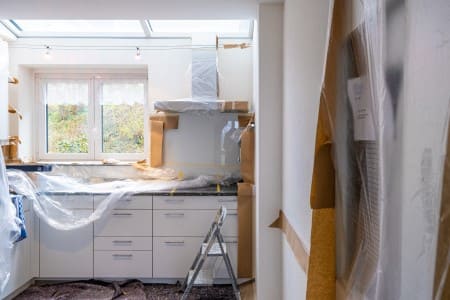
Covid-19, and the resulting lockdowns, hit the entire economy. Additionally, it completely upended our very way of life. Overnight, families and businesses alike had to adapt to a world which became all but inaccessible. The property market saw some of the most dramatic shake-ups. But what exactly was the effect of Covid on the property market and are we back to normal?
As social distancing measures were introduced, house viewings proved tricky to pull off. Working from home became the norm for many. Eventually, workers adapted and grew to love taking zoom calls in their pyjamas. Granted, efforts have been made to get workers back into the office, with many missing the camaraderie. Nevertheless, the pandemic forced many to have a rethink on what they needed from a home. What’s the use of having an expensive house near a train station if you no longer need to commute?
These thoughts likely ramped up when the Government stepped in to support the market. To keep property sales ticking along, a stamp duty holiday was introduced to reduce property investment costs. Suddenly, buyers were incentivised to invest. But during the same period, a collective rethink on what was essential occurred. Within just 2 years, a new set of priorities emerged.
How Covid changed priorities in 2019 vs. 2021
To understand what’s important to the market, we surveyed UK-based homebuyers and investors on what they considered the most important factors in a home. We conducted this survey both in 2019 and 2021 and certain shifts in tastes were clear to see.
In 2019, before the effect of Covid on the property market kicked in, our survey revealed the top 15 factors that were important to buyers. A few expected priorities emerged, such as square footage and garden space. However, how close a property was to the nearest city or town proved especially important to buyers in 2019. At the same time, the potential for extensions and conversions ranked towards the bottom, in 14th place.
However, drastic changes were seen as we reached 2021. Last year, broadband and mobile connectivity jumped from 8th place to 3rd. This could be the result of workers needing strong connections for their zoom meetings and home offices. Extensions and conversions also jumped to 8th place. As people spent more time in their homes than ever, perhaps they wanted to make sure they were as comfortable as possible. Indeed, transport links plummeting to 14th place. Instead, many homeowners appeared keen to stay put and upgrade.
Property key selling points in 2022
Even now, homebuyers appear keen to make their homes as nice as possible, as opposed to finding a property close to an office block. Rightmove investigated what are the key selling points of a home in 2022. Garden offices, bi-fold doors, and orangeries took the top spots. What’s more, nearly two thirds (63%) of UK homeowners plan to upgrade their properties over the next 10 years in a bid to cut energy bills.
For property investors, taking note of these preferences could prove important. We may see a reversal of the “lockdown exodus”. Over the last 2 years or so, many city-based workers realised they no longer needed to be near the office. Many flocked to the countryside in search of greenery and space. But, as normality returned, some of these buyers appeared to regret their decision.
Estate agents have seen a rise in “boomerang buyers”. People are leaving the country to return to the excitement of the capital and other large cities. As these buyers return, they may be in the market for desirable homes with large gardens, green credentials, and strong internet connections.
Source: Rightmove, NatWest, The Telegraph

What about commercial property?
Covid did not only have an effect on the residential property market. Commercial priorities were also completely turned on their heads. Businesses, especially the retail kind, were forced to shut down for several months. Unfortunately, many of them never truly recovered.
Our high streets are challenged and filled with empty stores and boarded up windows. Even as the world opened up again, demand for certain commercial space struggled to bounce back. Many offices remain unfilled as workers hold onto their flexible preferences. Meanwhile, retail outlets struggle to lure shoppers away from the digital world.
Having said that, commercial property in other sectors appear to be bouncing back in a post-covid landscape. Industrial property, data centres and logistic hubs are expected to do well as expansion plans come to fruition.
For commercial property investors, the effect of Covid has allowed new strategies to come to light. Conversions may provide plenty to offer investors. Whether they plan to convert empty offices into data centres or residential flats. They’ll want to act quickly though as the wider market is waking up to this new potential. In recent months, applications for new commercial-to-residential permitted developments rose by 41%, according to the latest Government figures.
Source: Landlord Zone, Landlord Zone, RICS, Carter Jonas, Planning Resource
The effect of Covid on property finance
The UK, along with much of the world, is still dealing with the effect of Covid on the property market and wider economy. Over the last couple of years, various support packages were introduced to help the economy. Now we’ve put the worst of it behind us. And the state is starting to think about how we’re going to cover these costs.
Add in the cost-of-living crisis, along with the war in Ukraine, and the situation looks particularly dire. Inflation shows few signs of slowing down. To counteract this, the Bank of England has started to raise interest rates. This will raise costs for businesses and investors alike. Consequently, we’ve already seen high street lenders react. In recent weeks, banks have been pulling their mortgage deals from the shelves. In September alone, the number of available mortgage products on the market dropped by 517 to 3,890 in total. This was the lowest level seen since April 2021.
Source: The Telegraph, Mortgage Solutions
Development of property prices
Yet, despite these pressures, demand in the market remains unprecedented. Property prices rose to a sixth consecutive high in July according to Rightmove, with the average price sitting at £369,968. Additionally, the market is still grappling with a crippling lack of supply, which is hitting renters particularly hard.
Our current shortage pushed rental growth to 12.3% over the last 12 months or so. Buyer demand is still outpacing supply too, pushing prices even higher last month. All of this reiterates the need for specialist finance. As high street lenders become increasingly inaccessible, and buyers chase dwindling supplies, the need for flexible finance becomes paramount. Even with the effect of Covid on the property market, we can have funding issued in as little as three days. Skyrocketing inflation and base rate hikes will not stop us from helping you with your investment plans.
Source: Property Reporter, Property Reporter, i news
Disclaimer
MFS are a bridging loan and buy-to-let mortgage provider, not financial advisors. Therefore, Investors are encouraged to seek professional advice.










